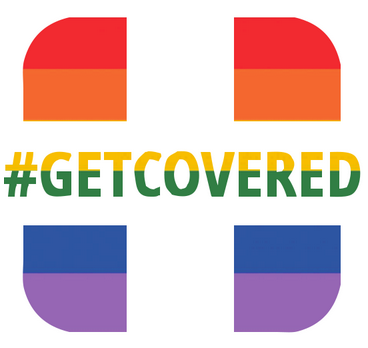
Healthcare is an LGBT equality issue. It's not quite as sexy of an issue as marriage equality or nondiscrimination—although it does overlap—and it is just as important.
People in our LGBT community are more likely to be uninsured and in 2013, 1 in 3 low- and middle-income LGBT people were uninsured—which is incredibly high!
There are a number of reasons for this, but some of the big ones are:
- Most people get their health insurance through their job, but many employers haven't extended benefits like health insurance to recognize LGBT families.
- Also, our community is more likely to be low-income and, as a result, less likely to have employment that offers health insurance or to be able to afford to buy insurance on the individual marketplace. (Something important to remember here is that, in my home state of North Carolina along with 21 other states, they had the opportunity under the ACA to expand Medicaid benefits to low-income adults and they intentionally left people out of health coverage.)
- And finally: The transgender community, in particular, has faced serious barriers to coverage. In fact: before the ACA, being transgender itself was considered a preexisting condition - so many of our trans friends and family weren't able to get health insurance at all. As a result, a staggering 59% of low- and middle-income trans people were uninsured in 2013.
With the roll out of the law beginning in 2010 and the first two open enrollment periods for the Affordable Care Act under our belts, I do have some good news to report, which is that 16.4 million more Americans have gained health coverage.
And the ACA is definitely helping decrease the number of uninsured people in the LGBT community. Thanks to financial help through the marketplace and new nondiscrimination protections, the uninsured rate for low- and middle-income LGBT people dropped by 24 percent between 2013 and 2014 from 1 in 3 down to 1 in 4.
One of the people who gained coverage is Shawn McDonald, a MomsRising member in Michigan. He was an uninsured musician, in his early twenties, and working three part-time jobs when he was diagnosed with HIV in 2007. Being uninsured with a serious pre-existing condition like HIV meant he couldn’t get insurance on the individual market, but eventually was able to get insurance through his partner and he received treatment for a few years. But when that relationship ended, so did his access to health coverage. By that time though, the ACA was being implemented and he was able to get insurance through the Pre-Existing Insurance Program that was created temporarily before the exchanges got up and running and is now insured through a Marketplace plan.
Now, when LGBT people buy health insurance, there are extensive new protections that prohibit discrimination through higher premiums or denial of coverage based on sexual orientation, gender identity, and even pre-existing conditions, including HIV. And, quite importantly, being transgender can no longer be considered a “pre-existing condition”.
There are still kinks being worked out of the system. A huge win for same-sex couples was actually set in motion from North Carolina when Thomas Hafke and Chad Higby, a couple who live in Moore County, discovered they couldn’t get a family plan through our state’s healthcare marketplace because they were a same-sex couple. They wrote a blog about it for Equality NC, which was promoted widely and sparked Blue Cross Blue Shield of North Carolina to change their policy. That case led to the discovery of similar cases in Ohio and Pennsylvania, which prompted the Federal Department of Health and Human Services to change their policy and require insurance companies to make family and spousal coverage equally available to same-sex and opposite-sex spouses.
So - as you can see, even though there are still many areas where improvements are needed, things are getting better. And if we keep speaking out and bringing attention to problem areas, we can continue to make progress and improve access to healthcare for people in our LGBT family.
Although we have this good news about the fact that the ACA is beginning to work for our community, 1 in 4 LGBT people are still uninsured, which is much higher than the general population. This goes to show that good news can only do good, if it is shared. There's still a lot more work to be done… 22 states still needs to expand Medicaid for low-income adults and there’s still a whole lot of people who don’t know that they may now be eligible for insurance through their spouse’s work or for subsidies to buy health insurance on the marketplace… Which is why we need everyone to keep the conversation going.
Getting information out to people is key. At the beginning of the last open enrollment period in November, an Asheville, NC couple, Jillian Levy and Andrea Wright, went to an enrollment event hoping to get Jillian covered through a plan on the Federal exchange. However, because they’d recently gotten married, they found out that Jillian didn’t qualify for a subsidy because her new wife had access to affordable coverage through her work. This actually ended up working out really quite well for them, because they were finally able to officially get coverage as a family. They’ll be paying about $90 per month for Jillian’s premium—instead of $490—and save on out of pocket costs thanks to the $3,000 deductible. Knowledge is power!
You can help make sure that people in our community know and understand how the Affordable Care Act is improving access to health insurance for LGBT people. You don’t have to go out on your own as a healthcare crusader though, there are organizations that you can volunteer with or, at the very least, follow on social media to help share information with your friends and family.
An organization that is doing fantastic work in this area is called Out2Enroll. It’s a national organization and their website includes LGBT-specific questions and answers. And, of course, please sign up to get updates from MomsRising. We are between open enrollment periods right now but we are still working to get information out to people and there are a number of life-events that may make someone eligible for a special enrollment period. The next open enrollment period begins November 1st and we’ve still got a lot of work to do!
This post was adapted from a speech I delivered at the NC Equality Summit on March 20, 2015.


The views and opinions expressed in this post are those of the author(s) and do not necessarily reflect those of MomsRising.org.
MomsRising.org strongly encourages our readers to post comments in response to blog posts. We value diversity of opinions and perspectives. Our goals for this space are to be educational, thought-provoking, and respectful. So we actively moderate comments and we reserve the right to edit or remove comments that undermine these goals. Thanks!